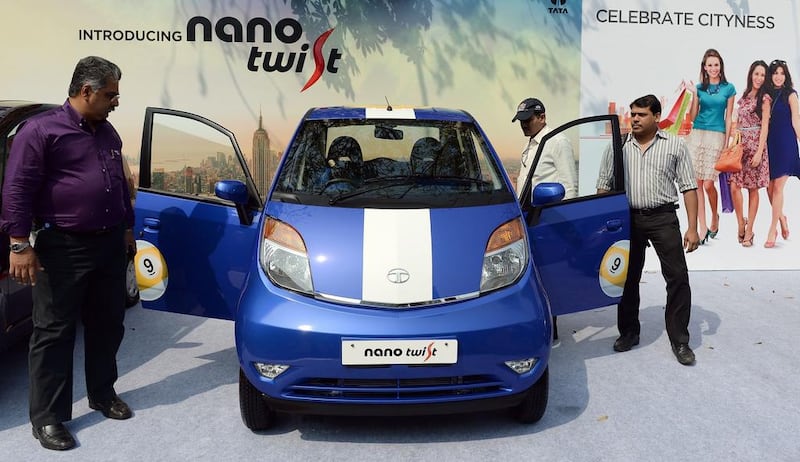India’s struggling Tata Nano, launched in 2009 as the world’s cheapest car, unveiled a new, pricier variant of the jelly-bean shaped car on Monday featuring power-steering in a bid to boost flagging sales.
The latest model, called Nano Twist, targets young people. It has power steering along with remote keyless entry, a four-speaker music system with bluetooth and a higher ground clearance for rough terrain.
Ranjit Yadav, the president for Tata Motors’ passenger vehicles business, said the car was “loaded with trendy features” to make it a “smart city car to hang out with”.
When Tata Motors – part of India’s giant Tata group – launched the Nano in 2009, analysts said it would revolutionise how millions in India travelled.
But after poor sales in recent years, it become clear the car’s unique selling point – its price – had backfired as aspirational Indians shied away from buying a vehicle tagged the world’s cheapest.
Tata Motors – part of the tea-to-steel Tata conglomerate – has been seeking to reposition the car in the market by adding features and making it trendier.
In December, Tata Motors sold just 554 Nano cars, down 75 per cent from 2,202 cars a year earlier.
Tata Motors officials on Monday said some 45 per cent of Nano drivers are between 18 and 34.
The Tata group’s former chairman Ratan Tata said shortly before his retirement in December 2012 it had been a mistake to market the Nano merely on its low-price, saying “various stigmas have been attached to it”.
He said the Nano had a “strong future” with an upmarket image and did not want it to be branded as the “world’s cheapest car”.
The purple-coloured Nano Twist will be sold at a price of 236,000 rupees while the base model costs around 150,000 rupees.
Since its launch for just 100,000 rupees for the base model, the Nano has had several small makeovers – including upgrades to its interior and a doubling of its warranty to four years.
* AFP





